
Selma: A Journey Through Time and Triumph
Selma, Alabama, is a city rich in history and culture. Nestled along the banks of the Alabama River, Selma is most famously known for its pivotal role in the American Civil Rights Movement. The city is home to the Edmund Pettus Bridge, a National Historic Landmark that was the site of the infamous 'Bloody Sunday' in 1965. Walking across this bridge today, you can feel the echoes of the past and the courage of those who fought for justice. Beyond its historical significance, Selma offers a variety of attractions that make it a worthwhile destination. The Selma to Montgomery National Historic Trail takes you through key sites of the Civil Rights Movement, providing a deeper understanding of the struggles and triumphs of the era. The Old Live Oak Cemetery offers a tranquil escape with its beautiful, ancient oak trees and historic graves, including those of Confederate soldiers. Selma's downtown area is charming, with its blend of old and new. You will find antique shops, cozy cafes, and art galleries that capture the city's unique spirit. The Sturdivant Hall Museum is a must-see, showcasing antebellum architecture and offering a glimpse into the lives of Selma's wealthy pre-Civil War residents. For nature lovers, the nearby Paul M. Grist State Park provides opportunities for hiking, fishing, and picnicking in a serene setting.
Local tips in Selma
- Visit the Edmund Pettus Bridge early in the morning to avoid crowds and have a peaceful experience.
- Check the local calendar for Civil Rights reenactments and events to enrich your visit.
- Wear comfortable shoes for walking tours, especially when exploring the Selma to Montgomery National Historic Trail.
- Stop by the Selma Interpretive Center for detailed information and exhibits about the city's history.
- Try local Southern cuisine at one of Selma's family-owned restaurants for an authentic experience.
Selma: A Journey Through Time and Triumph
Selma, Alabama, is a city rich in history and culture. Nestled along the banks of the Alabama River, Selma is most famously known for its pivotal role in the American Civil Rights Movement. The city is home to the Edmund Pettus Bridge, a National Historic Landmark that was the site of the infamous 'Bloody Sunday' in 1965. Walking across this bridge today, you can feel the echoes of the past and the courage of those who fought for justice. Beyond its historical significance, Selma offers a variety of attractions that make it a worthwhile destination. The Selma to Montgomery National Historic Trail takes you through key sites of the Civil Rights Movement, providing a deeper understanding of the struggles and triumphs of the era. The Old Live Oak Cemetery offers a tranquil escape with its beautiful, ancient oak trees and historic graves, including those of Confederate soldiers. Selma's downtown area is charming, with its blend of old and new. You will find antique shops, cozy cafes, and art galleries that capture the city's unique spirit. The Sturdivant Hall Museum is a must-see, showcasing antebellum architecture and offering a glimpse into the lives of Selma's wealthy pre-Civil War residents. For nature lovers, the nearby Paul M. Grist State Park provides opportunities for hiking, fishing, and picnicking in a serene setting.
When is the best time to go to Selma?
Iconic landmarks you can’t miss
Edmund Pettus Bridge
Explore the Edmund Pettus Bridge, a historic landmark in Selma, Alabama, that symbolizes the struggle for civil rights and equality in America.
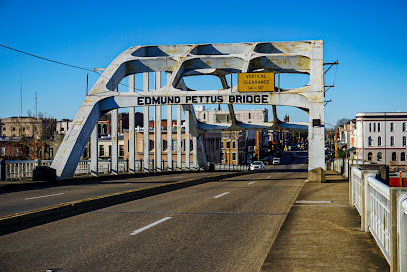
Lannie's Bar-B-Q Spot
Discover authentic Southern barbecue at Lannie's Bar-B-Q Spot in Selma, Alabama, a must-visit for food lovers seeking delicious flavors.
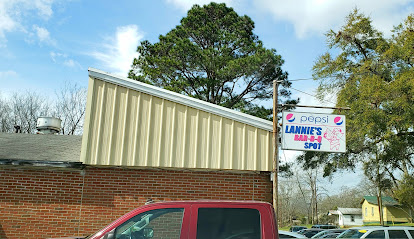
National Voting Rights Museum and Institute
Discover the powerful history of voting rights at the National Voting Rights Museum and Institute in Selma, Alabama, a pivotal site for civil rights.
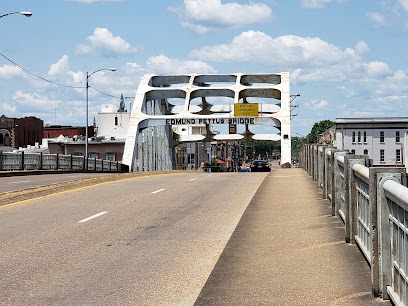
Tally-Ho Restaurant
Discover Tally-Ho Restaurant in Selma, AL, where succulent steaks and a warm atmosphere create an unforgettable dining experience.
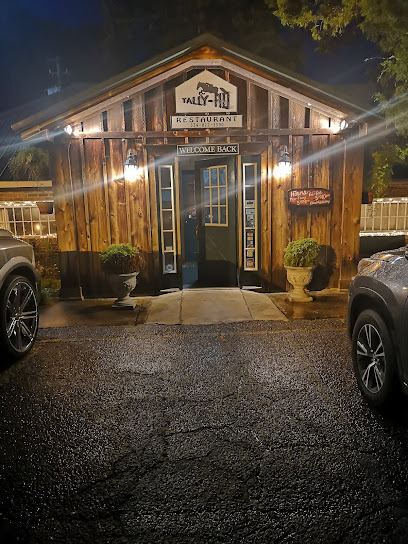
The Sandbar
Enjoy Southern cuisine with a waterfront view at The Sandbar, Selma's scenic grill and restaurant on the Alabama River.
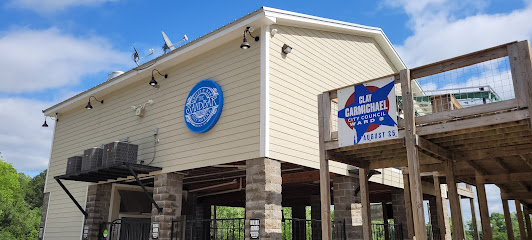
Selma Mall
Explore Selma Mall in Alabama: Your ultimate shopping destination with diverse stores, dining options, and family-friendly entertainment.
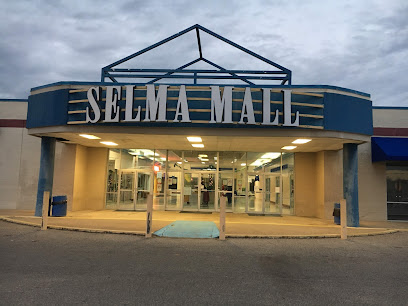
Hampton Inn Selma
Experience comfort and Southern hospitality at the Hampton Inn Selma, your perfect base for exploring Alabama's historic sites and vibrant culture.
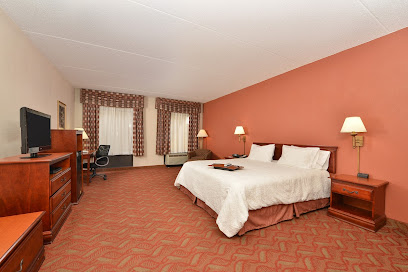
Lowndes Interpretive Center of the Selma to Montgomery National Historic Trail
Explore the Lowndes Interpretive Center and delve into the powerful history of the Selma to Montgomery march, a cornerstone of the civil rights movement.
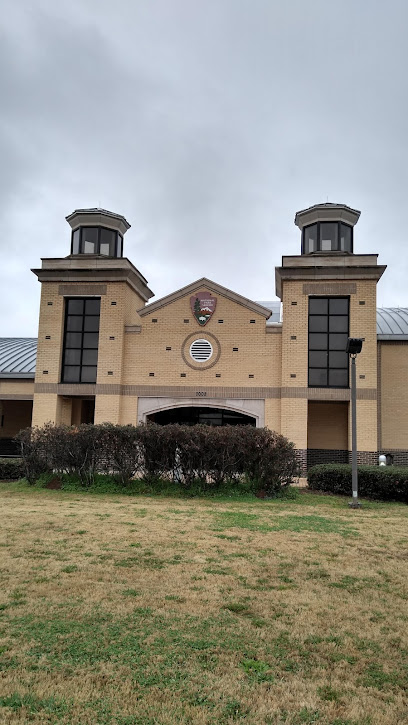
The Coffee Shoppe
Discover the heart of Selma at The Coffee Shoppe, where delightful brews and local charm create the perfect café experience.
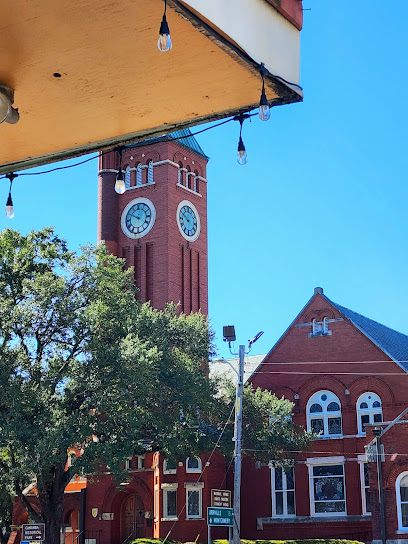
St. James Hotel Selma, Tapestry Collection by Hilton
Experience Southern charm at St. James Hotel Selma, where history meets modern comfort along the beautiful Alabama River.

Junebugg's Flea & Antique Mall
Discover unique antiques and vintage treasures at Junebugg's Flea & Antique Mall in Selma, AL – a delightful experience for treasure hunters and nostalgia seekers.
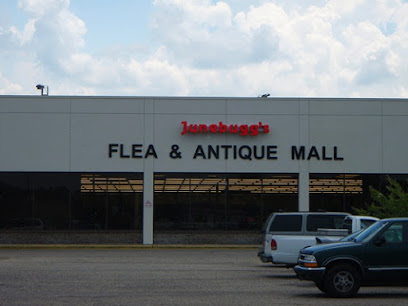
Huddle House
Experience the heart of Southern hospitality at Huddle House in Selma, Alabama, where delicious American comfort food awaits you.
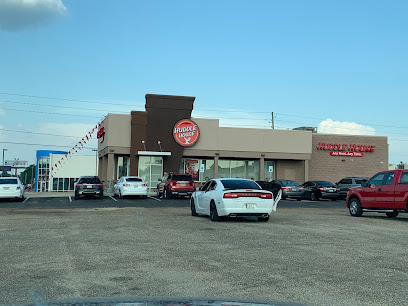
Quality Inn Edmund Pettus Bridge area
Experience Southern hospitality and explore Selma's historic sites at Quality Inn near the Edmund Pettus Bridge.

Brown Chapel AME Church
Visit the historic Brown Chapel AME Church in Selma, Alabama, a pivotal landmark in the Civil Rights Movement and the fight for voting rights.
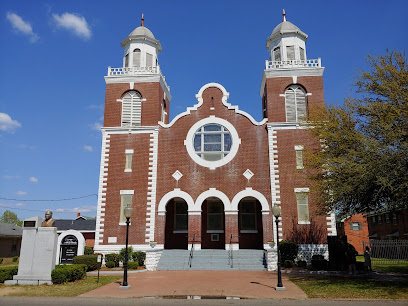
Candy Lady
Experience the sweetness of Selma at Candy Lady, where delightful ice cream flavors and a charming atmosphere await every visitor.
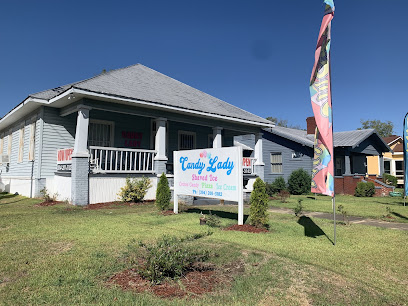
Unmissable attractions to see
Edmund Pettus Bridge
Walk in the footsteps of civil rights heroes on this iconic bridge, a powerful symbol of the fight for voting rights and equality in Selma, Alabama.
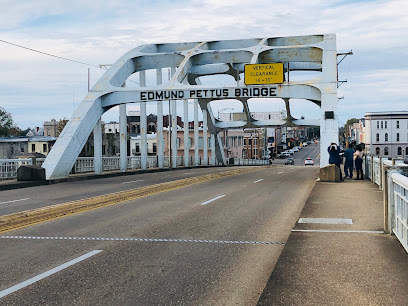
National Voting Rights Museum and Institute
Explore the history of the Voting Rights Movement at this important Selma museum, located near the Edmund Pettus Bridge.
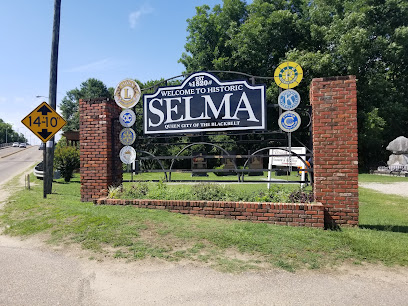
Lowndes Interpretive Center
Explore Lowndes County's pivotal role in the Civil Rights Movement at this immersive center along the historic Selma to Montgomery Trail.
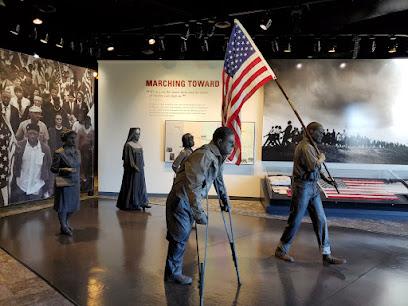
Lowndes Interpretive Center of the Selma to Montgomery National Historic Trail
Explore Lowndes Interpretive Center: a key landmark on the Selma to Montgomery National Historic Trail, honoring the Voting Rights Movement.
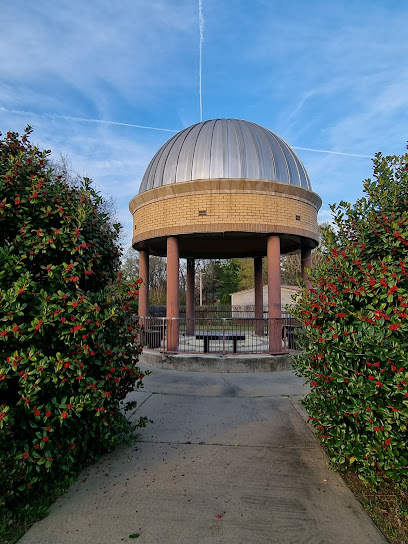
Brown Chapel AME Church
Visit the historic Brown Chapel AME Church in Selma, Alabama, a pivotal landmark in the Civil Rights Movement and the fight for voting rights.
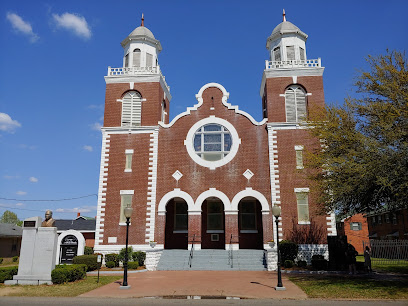
Selma Interpretive Center of the Selma to Montgomery National Historic Trail
Discover the starting point of the historic Selma to Montgomery march, a pivotal landmark in the Civil Rights Movement.
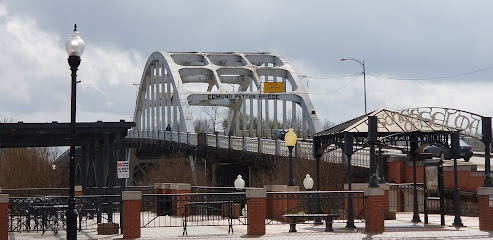
Civil Rights Memorial Park
Reflect on the courageous fight for equality at Selma's Civil Rights Memorial Park, honoring pivotal events and figures of the movement.
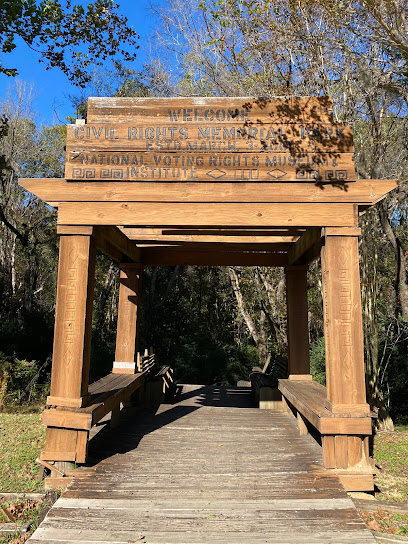
Sturdivant Hall Museum
Step back in time at Sturdivant Hall Museum in Selma, Alabama, and explore the grandeur and history of this meticulously preserved antebellum mansion.
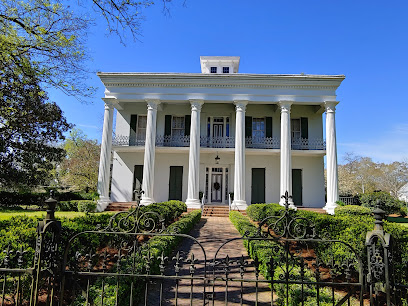
Historic Riverfront Park
Explore Selma's Historic Riverfront Park: A scenic waterfront park with Civil Rights history, river views, and a peaceful atmosphere.
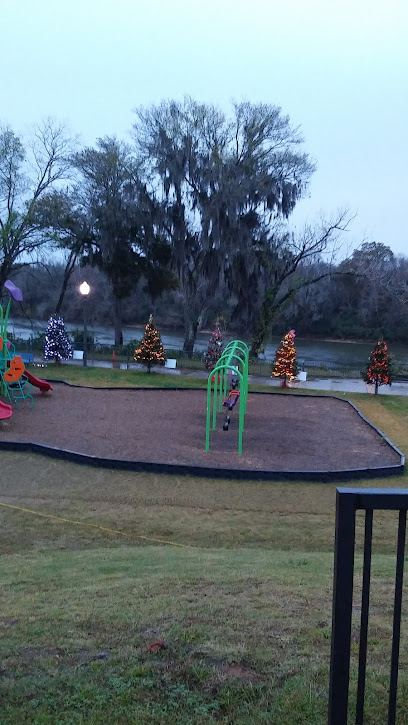
Old Depot Museum
Explore Selma's vibrant history at the Old Depot Museum, from Native American artifacts to the Civil Rights Movement.
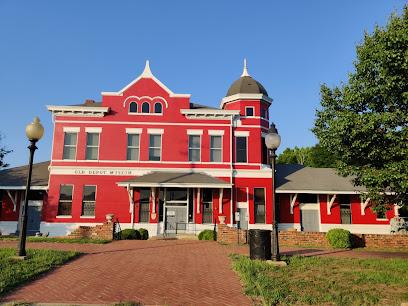
Old Depot Museum
Explore Selma's vibrant history, from Native American settlements to the Civil Rights Movement, at the Old Depot Museum.
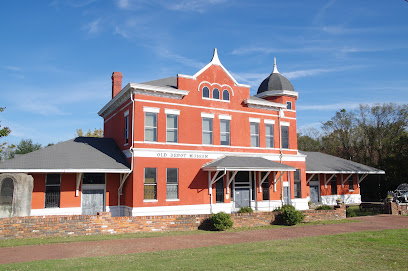
Lions Fair Park
A community hub in Selma, Alabama, hosting the annual Central Alabama Fair and various local events.
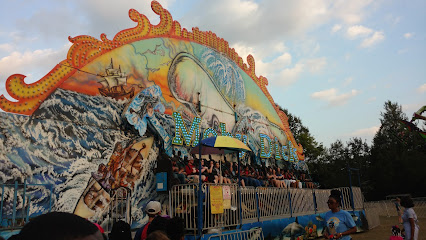
Vaughan Smitherman Museum
Explore Selma's vibrant past within the walls of this historic Greek Revival landmark, from Civil War relics to hospital artifacts.
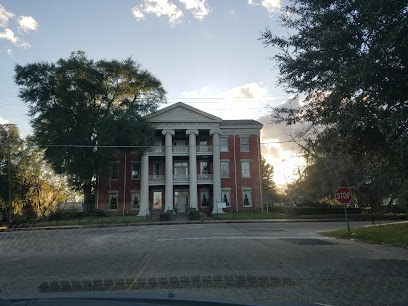
Tabernacle Baptist Church
Visit Tabernacle Baptist Church in Selma, a historic landmark and pivotal site in the Civil Rights Movement, showcasing courage and resilience.
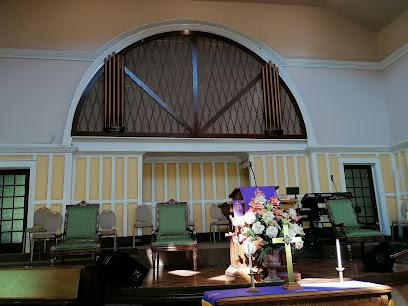
Bridge Crossing Jubilee
Commemorating the Selma to Montgomery marches and the Voting Rights Act, honoring civil rights history and the fight for equality.
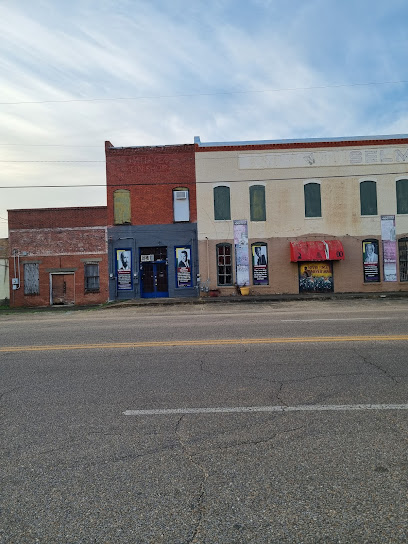
Essential places to dine
Sonic Drive-In
Experience classic American fast food at Sonic Drive-In in Selma - where tasty burgers meet friendly service.
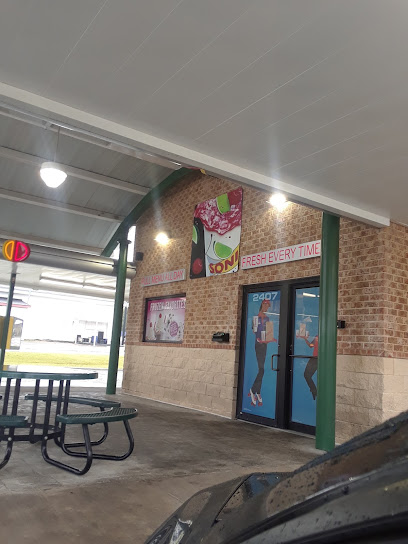
Wendy's
Savor delicious burgers and fries at Wendy's in Selma—your perfect fast food stop during your Alabama adventures.
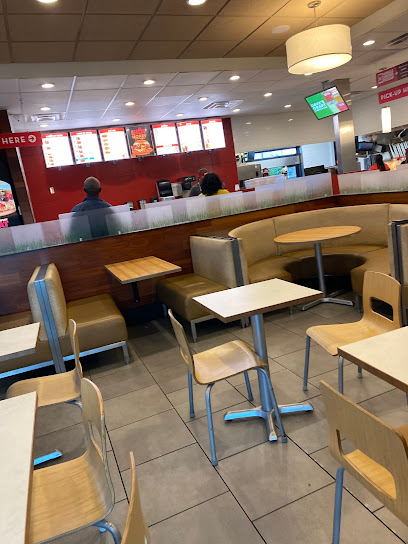
Taco Bell
Discover the joy of Tex-Mex cuisine at Taco Bell in Selma - a must-visit destination for fast food lovers seeking delicious meals at great prices.
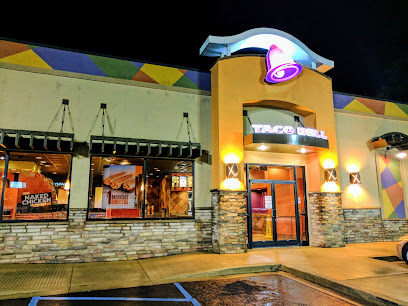
KFC
Savor the iconic flavors of KFC in Selma - where Southern hospitality meets delicious fried chicken.
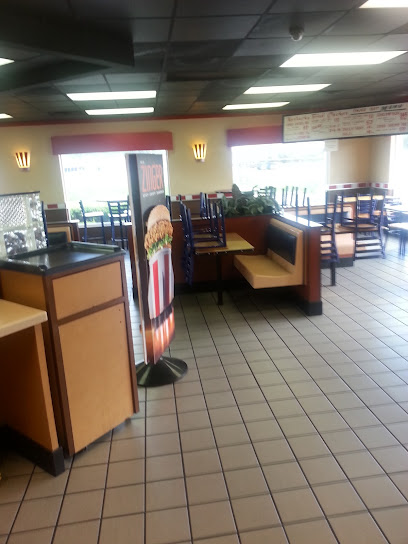
Lannie's Bar-B-Q Spot
Discover authentic Southern barbecue at Lannie's Bar-B-Q Spot in Selma, AL - where every bite is a taste of tradition.
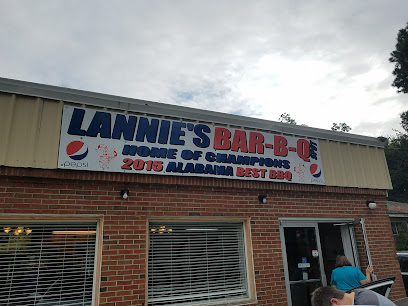
Jack's
Experience authentic Southern fast food at Jack's in Selma - where hearty meals meet friendly service in a welcoming atmosphere.
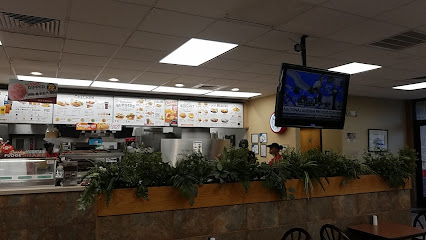
Lannie's Bar-B-Q #2
Experience authentic Southern barbecue at Lannie's Bar-B-Q #2 in Selma, Alabama - where flavor meets tradition.
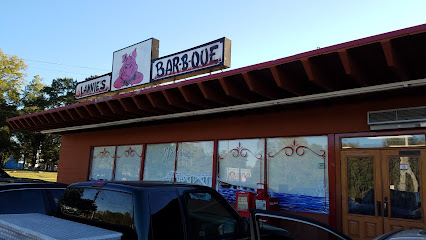
Mr Waffle
Experience delightful breakfasts at Mr Waffle in Selma - where fluffy waffles and Southern hospitality meet.
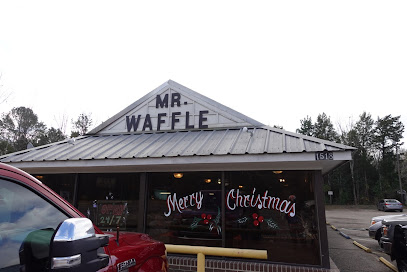
Zaxby's Chicken Fingers & Buffalo Wings
Experience the best of Southern comfort food at Zaxby's Chicken Fingers & Buffalo Wings – where flavor meets fun in every bite!
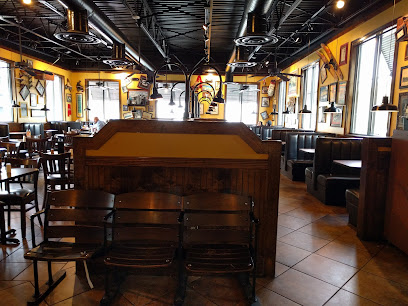
Captain D's
Discover delicious seafood delights at Captain D's in Selma – where family-friendly dining meets coastal flavors.
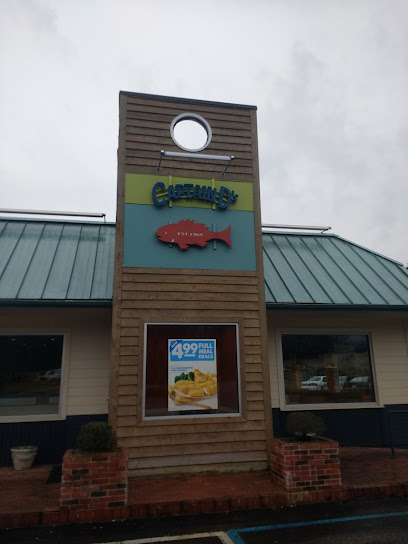
American Deli
Experience the best of Southern comfort food at American Deli - where delicious chicken wings meet family-friendly dining in Selma.
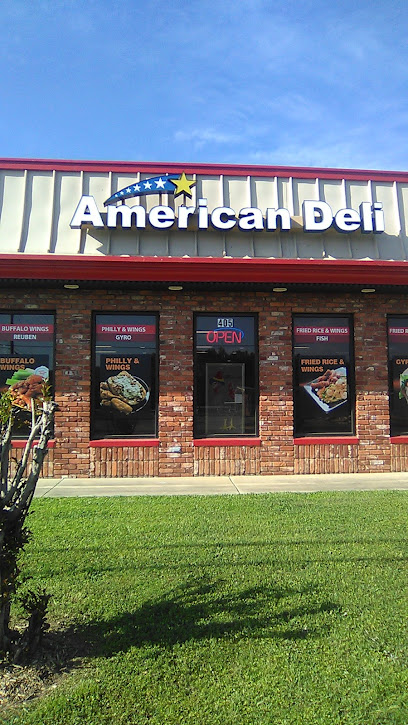
Church's Texas Chicken
Discover the delicious taste of Southern comfort food at Church's Texas Chicken in Selma - where every meal is a celebration!
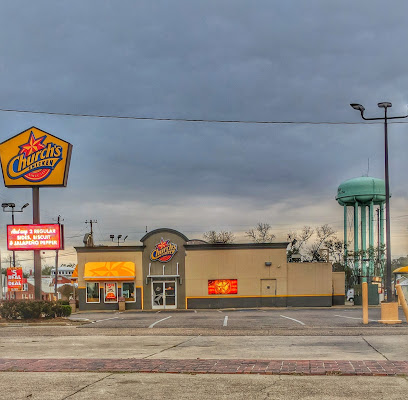
Hancocks Barbeque
Experience authentic Southern barbecue at Hancocks Barbeque in Selma, AL—where every bite is a taste of tradition and flavor.
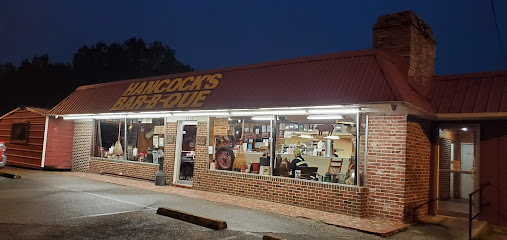
Tally-Ho Restaurant
Discover Tally-Ho Restaurant in Selma: Where succulent steaks meet Southern hospitality in a cozy dining atmosphere.
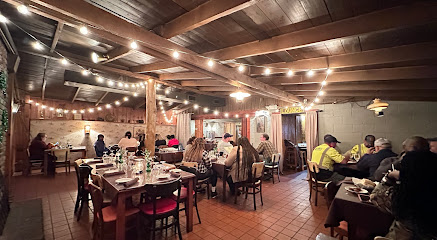
Mi Tenampa
Indulge in vibrant Mexican cuisine at Mi Tenampa in Selma - where every meal is a celebration of flavor and culture.
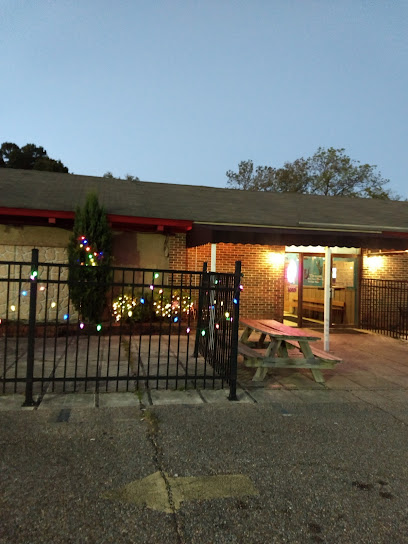
Markets, malls and hidden boutiques
Walmart Supercenter
Experience the convenience of shopping at Walmart Supercenter in Selma, Alabama, offering everything from groceries to electronics under one roof.
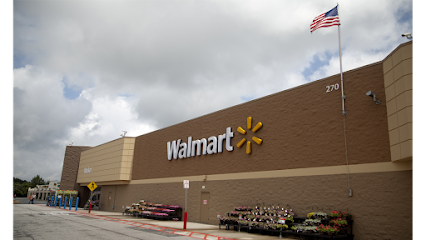
Selma Mall
Discover a shopping oasis at Selma Mall, featuring diverse stores, dining spots, and entertainment in the heart of Selma, Alabama.
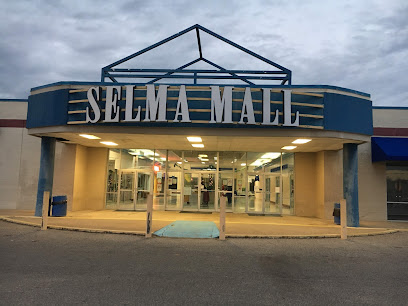
Junebugg's Flea & Antique Mall
Explore the eclectic charm of Junebugg's Flea & Antique Mall in Selma, Alabama, where treasures await around every corner.
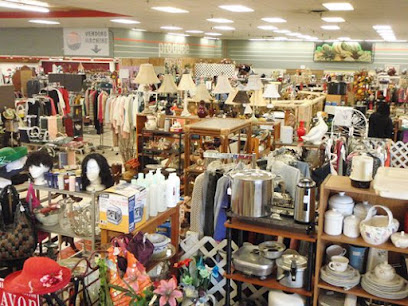
Selma Curb Market
Explore local flavors and community spirit at Selma Curb Market, your go-to grocery store in Selma, Alabama, offering fresh produce and unique artisanal goods.
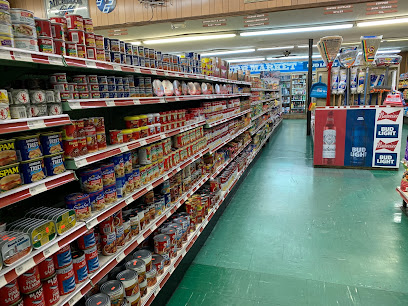
On Time Fashions
Discover the latest trends in men's fashion at On Time Fashions, Selma's go-to destination for stylish clothing and accessories.
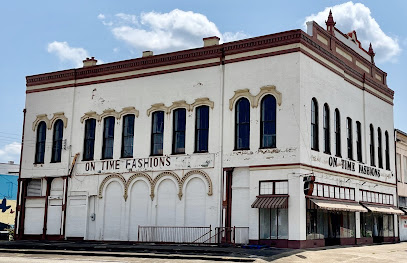
Citi Trends
Discover stylish and affordable fashion for the whole family at Citi Trends in Selma, Alabama – a must-visit clothing destination!
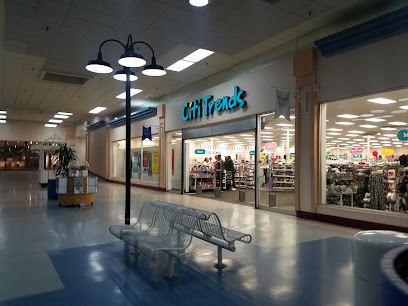
One Way Book Store
Discover a treasure trove of books, church supplies, and trophies at One Way Book Store in Selma, Alabama - a must-visit for every book lover.

Kustom Kreation Floral & Gift Shop
Explore Kustom Kreation Floral & Gift Shop in Selma, Alabama – where unique gifts and stunning floral arrangements await every visitor.
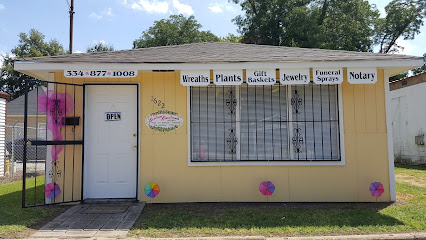
Foot Locker
Discover the latest trends in footwear and sportswear at Foot Locker Selma - your ultimate shopping destination for stylish sneakers and apparel.
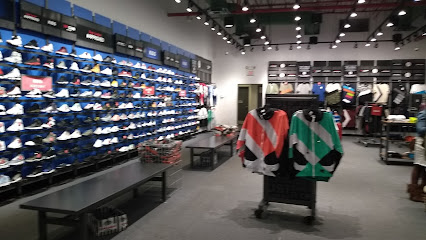
B & B Grocers
Explore local flavors and essentials at B & B Grocers in Selma, Alabama, where quality meets convenience for every traveler.
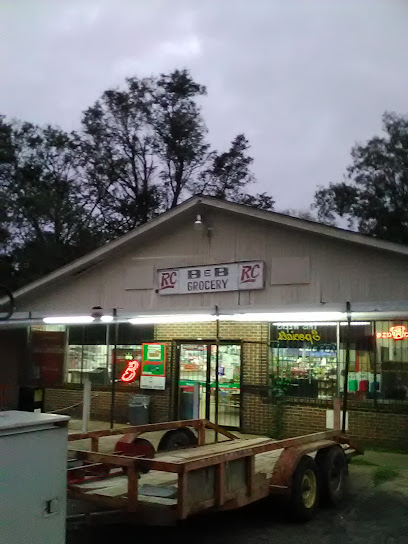
Cato Fashions
Discover stylish women's clothing at Cato Fashions in Selma, Alabama, where fashion meets affordability in a welcoming shopping environment.
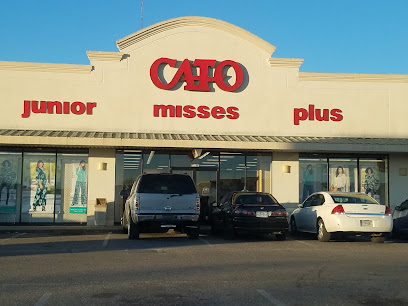
The Salvation Army Family Store
Explore unique second-hand treasures at The Salvation Army Family Store in Selma, Alabama, while supporting community initiatives and sustainability.
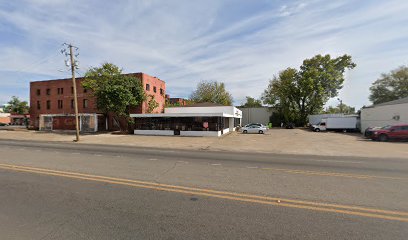
KD Bridal & Formalwear
Explore KD Bridal & Formalwear in Selma, Alabama, for exquisite wedding dresses and tuxedos, creating unforgettable moments for your special day.
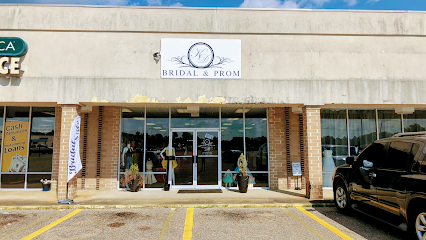
Spiller Furniture Co
Explore Spiller Furniture Co in Selma, Alabama - where quality craftsmanship meets stylish design in a welcoming atmosphere.
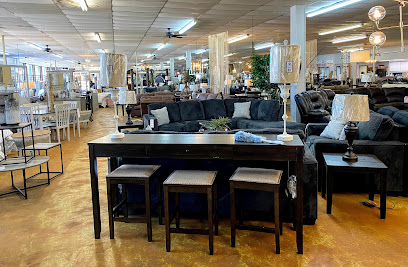
Goodwill
Explore Goodwill Selma for unique thrift finds and sustainable shopping, where every purchase supports community programs and promotes recycling.
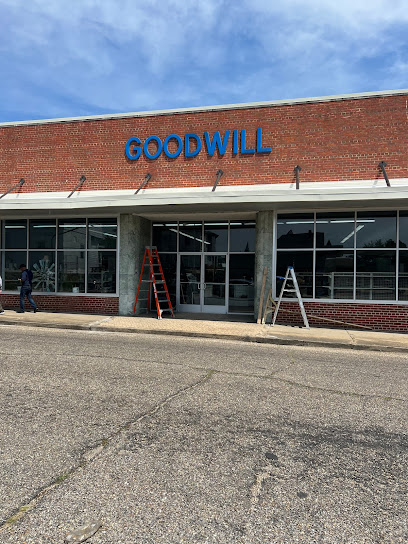
Essential bars & hidden hideouts
Lannie's Bar-B-Q Spot
Discover the rich flavors of Southern barbecue at Lannie's Bar-B-Q Spot in Selma, Alabama, where every bite tells a story of tradition and taste.
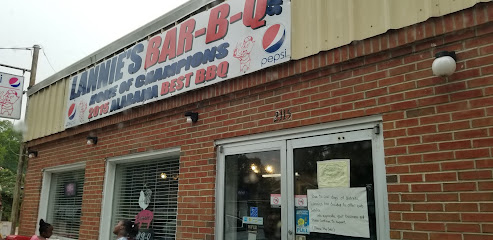
Lannie's Bar-B-Q #2
Discover the rich flavors of Southern barbecue at Lannie's Bar-B-Q #2 in Selma, Alabama, where every bite tells a story of tradition and taste.
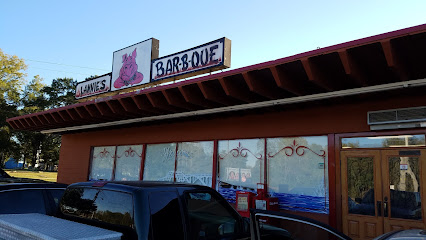
Tally-Ho Restaurant
Experience the finest steak at Tally-Ho Restaurant in Selma, Alabama, where Southern hospitality meets culinary excellence.
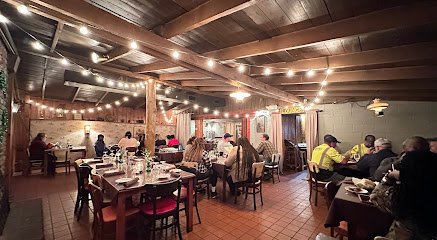
The Sandbar
Experience the charm of Southern cuisine at The Sandbar, a scenic restaurant in Selma, Alabama, offering breathtaking views and delicious meals.
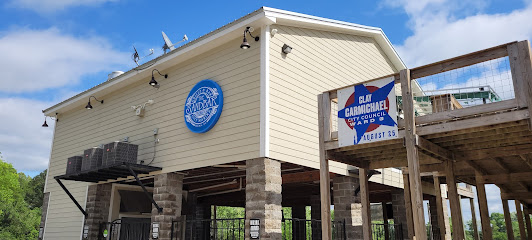
The Downtowner Restaurant
Experience the best of Southern comfort food at The Downtowner Restaurant in Selma, Alabama. Perfect for families and food lovers alike.
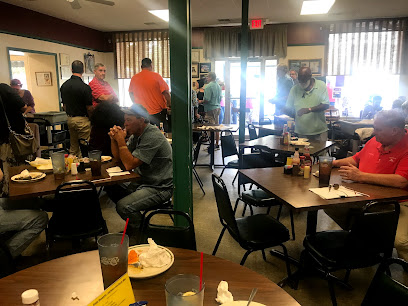
Michael's Pub
Discover the lively nightlife and warm atmosphere of Michael's Pub in Selma, Alabama, where great drinks and good company await you.
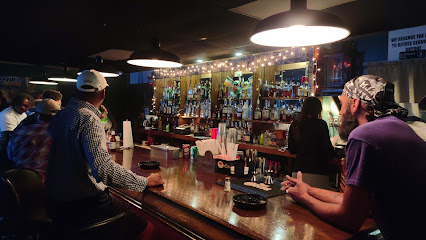
GOLDEN RANCH BAR & GRILLED
Discover the culinary delights of Golden Ranch Bar & Grilled in Selma, Alabama, where every dish is a celebration of local flavors and Southern hospitality.
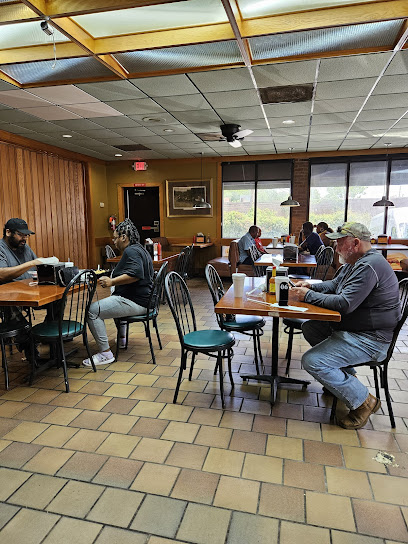
Sterling's
Experience the heart of American cuisine at Sterling's in Selma, Alabama, where hearty meals and warm hospitality await every visitor.
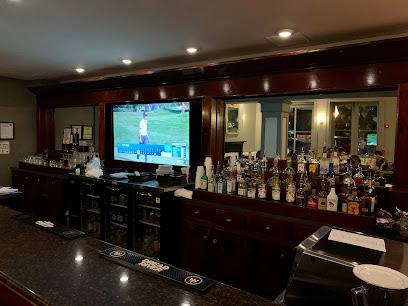
Dallas Bar-B-Que
Experience the authentic taste of Southern barbecue at Dallas Bar-B-Que, a beloved eatery in Selma, Alabama, known for its mouthwatering smoked meats.
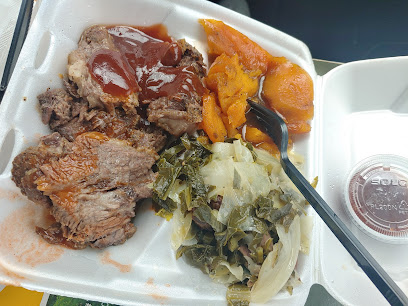
Tasty B's
Experience the heart of Southern cuisine at Tasty B's in Selma, Alabama – where every dish tells a story of local tradition and flavor.
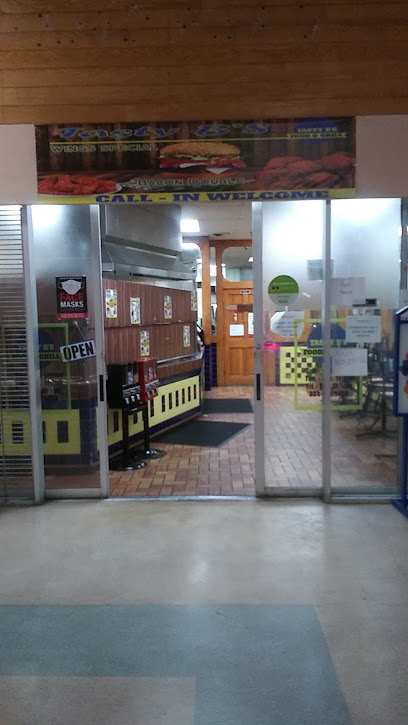
Xpression
Experience the flavors of Southern cuisine at Xpression, Selma's top restaurant, known for its warm ambiance and delightful menu.
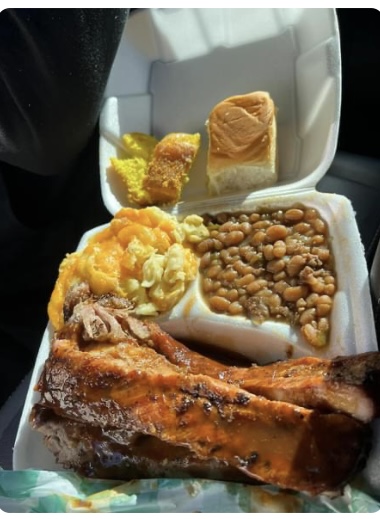
XPLOSION
Experience the thrill of sports at XPLOSION, Selma's go-to sports bar with delicious bites and a vibrant atmosphere.
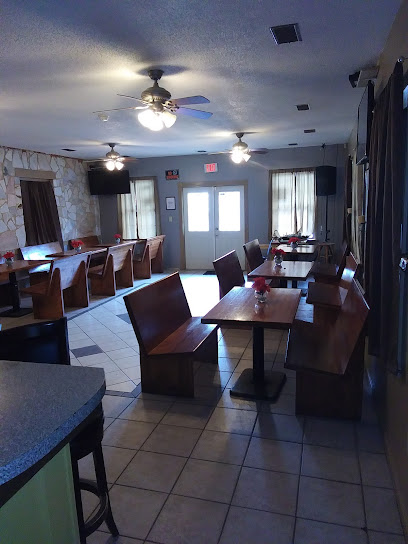
Southern Comfort Lounge
Experience Southern charm at the Southern Comfort Lounge in Selma, Alabama, where live music and delicious cocktails create unforgettable moments.
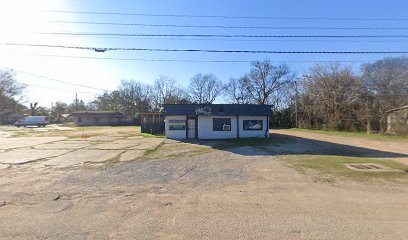
5 & Dime
Discover the heart of American cuisine at 5 & Dime, a charming restaurant in Selma, Alabama, serving delicious meals with a touch of love.
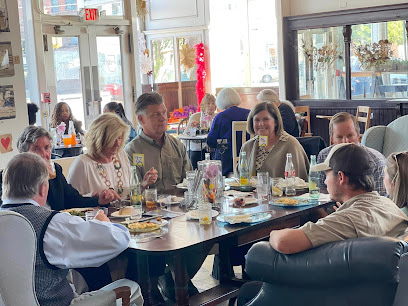
Local Phrases
-
- HelloHey y'all
[Hey y'all] - GoodbyeSee y'all later
[See y'all later] - YesYessir
[Yessir] - NoNaw
[Naw] - Please/You're welcomePlease/You're welcome
[Please/You're welcome] - Thank youThank ya
[Thank ya] - Excuse me/SorryExcuse me/Sorry
[Excuse me/Sorry] - How are you?How y'all doin'?
[How y'all doin'?] - Fine. And you?Fine. And y'all?
[Fine. And y'all?] - Do you speak English?Y'all speak English?
[Y'all speak English?] - I don't understandI don't git it
[I don't git it]
- HelloHey y'all
-
- I'd like to see the menu, pleaseI wanna see the menu, please
[I wanna see the menu, please] - I don't eat meatI don't eat no meat
[I don't eat no meat] - Cheers!Cheers!
[Cheers!] - I would like to pay, pleaseI wanna pay, please
[I wanna pay, please]
- I'd like to see the menu, pleaseI wanna see the menu, please
-
- Help!Help!
[Help!] - Go away!Git away!
[Git away!] - Call the Police!Call the Po-lice!
[Call the Po-lice!] - Call a doctor!Call a doctor!
[Call a doctor!] - I'm lostI'm lost
[I'm lost] - I'm illI'm sick
[I'm sick]
- Help!Help!
-
- I'd like to buy...I wanna buy...
[I wanna buy...] - I'm just lookingI'm just lookin'
[I'm just lookin'] - How much is it?How much is it?
[How much is it?] - That's too expensiveThat's too much
[That's too much] - Can you lower the price?Can ya lower the price?
[Can ya lower the price?]
- I'd like to buy...I wanna buy...
-
- What time is it?What time is it?
[What time is it?] - It's one o'clockIt's one o'clock
[It's one o'clock] - Half past (10)Half past ten
[Half past ten] - MorningMornin'
[Mornin'] - AfternoonAfternoon
[Afternoon] - EveningEvenin'
[Evenin'] - YesterdayYesterdee
[Yesterdee] - TodayToday
[Today] - TomorrowTomorra
[Tomorra] - 1One
[One] - 2Two
[Two] - 3Three
[Three] - 4Four
[Four] - 5Five
[Five] - 6Six
[Six] - 7Seven
[Seven] - 8Eight
[Eight] - 9Nine
[Nine] - 10Ten
[Ten]
- What time is it?What time is it?
-
- Where's a/the...?Where's the...?
[Where's the...?] - What's the address?What's the address?
[What's the address?] - Can you show me (on the map)?Can ya show me (on the map)?
[Can ya show me (on the map)?] - When's the next (bus)?When's the next (bus)?
[When's the next (bus)?] - A ticket (to ....)A ticket (to ....)
[A ticket (to ....)]
- Where's a/the...?Where's the...?
History of Selma
-
Selma was founded in 1820 by William Rufus King, who later became the Vice President of the United States. The city's name, derived from a poem by James Macpherson, reflects its early aspirations of becoming a significant cultural and economic hub.
-
During the Civil War, Selma became a vital manufacturing center for the Confederacy, producing munitions, ironclad warships, and other military supplies. The city's strategic importance led to its capture and subsequent destruction by Union forces in 1865 during the Battle of Selma, a pivotal event that marked the waning days of the Confederacy.
-
After the Civil War, Selma faced significant challenges during the Reconstruction Era. The city, like much of the South, struggled to rebuild its economy and infrastructure. This period saw the rise of sharecropping and tenant farming, which replaced the old plantation system but perpetuated economic hardship for many African Americans.
-
Selma became a focal point of the Civil Rights Movement in the 1960s, particularly for the voting rights struggle. The city gained national attention during the Selma to Montgomery marches, which were organized to protest racial discrimination in voter registration. The violence that erupted on 'Bloody Sunday' on March 7, 1965, when peaceful demonstrators were brutally attacked by law enforcement on the Edmund Pettus Bridge, shocked the nation and galvanized support for the Voting Rights Act of 1965.
-
The Edmund Pettus Bridge, named after a Confederate general and later a leader in the Ku Klux Klan, became an iconic symbol of the Civil Rights Movement. Today, it stands as a poignant reminder of the sacrifices made in the struggle for equality and has been designated a National Historic Landmark.
-
Selma is home to numerous cultural and historical landmarks that reflect its rich history. Notable sites include the Old Depot Museum, which chronicles the city's history from its founding through the Civil Rights Movement, and Sturdivant Hall, a grand antebellum mansion that offers a glimpse into the lives of the Southern elite before the Civil War.
-
Each year, Selma hosts the Bridge Crossing Jubilee, a commemoration of the Selma to Montgomery marches. This event attracts thousands of visitors who come to honor the legacy of the Civil Rights Movement through a series of activities, including reenactments, educational forums, and cultural celebrations.
Selma Essentials
-
Selma is located in central Alabama, approximately 50 miles west of Montgomery. The nearest major airport is Montgomery Regional Airport (MGM), which is about an hour's drive from Selma. From the airport, you can rent a car or take a taxi to Selma. Alternatively, Greyhound buses offer routes to Selma from various cities. If you're driving, Selma is accessible via U.S. Highway 80.
-
Selma is a relatively small city, so many attractions are within walking distance. For longer distances, you can use local taxis or rideshare services like Uber and Lyft. While there is limited public transportation, the Selma City Bus System offers some routes within the city. Renting a car can also be a convenient option for exploring Selma and nearby areas at your own pace.
-
The official currency in Selma, like the rest of the United States, is the U.S. Dollar (USD). Credit cards are widely accepted in hotels, restaurants, and shops. ATMs are readily available throughout the city. It is advisable to carry some cash, especially for small purchases or in establishments that may not accept cards.
-
Selma is generally safe for tourists, but it is important to exercise caution, especially in areas with higher crime rates. Avoid walking alone at night in unfamiliar neighborhoods. Areas such as Old Town and certain parts of the downtown area have higher crime rates and should be avoided after dark. Always keep an eye on your belongings in crowded places.
-
In case of emergency, dial 911 for immediate assistance. The local police station and medical facilities, including Vaughan Regional Medical Center, are available in Selma. It is recommended to have travel insurance that covers medical emergencies. For minor health issues, there are several pharmacies in the city where you can purchase over-the-counter medications.
-
Fashion: Do dress comfortably and casually, but avoid overly revealing clothing, especially in religious or historical sites. Religion: Do respect local customs and traditions. When visiting churches, dress modestly and turn off your cell phone. Public Transport: Do be respectful of others and keep noise levels down. Don't eat or drink on public transport. Greetings: Do greet people with a friendly 'Hello' or 'Hi'. A handshake is common when meeting new people. Eating & Drinking: Do try local Southern cuisine and accept food offerings graciously. Don’t be overly critical of the food, as it is considered impolite.
-
To experience Selma like a local, visit the farmers' market for fresh produce and handmade goods. Engage with the locals; they are often friendly and willing to share stories about Selma’s rich history. Don’t miss the chance to walk across the Edmund Pettus Bridge and visit the National Voting Rights Museum and Institute. For a unique experience, take a guided tour of historical sites like the Selma to Montgomery National Historic Trail.
Trending Landmark in Selma
-
Edmund Pettus Bridge
-
Lannie's Bar-B-Q Spot
-
National Voting Rights Museum and Institute
-
Tally-Ho Restaurant
-
The Sandbar
-
Selma Mall
-
Hampton Inn Selma
-
Lowndes Interpretive Center of the Selma to Montgomery National Historic Trail
-
The Coffee Shoppe
-
St. James Hotel Selma, Tapestry Collection by Hilton
-
Junebugg's Flea & Antique Mall
-
Huddle House
-
Quality Inn Edmund Pettus Bridge area
-
Brown Chapel AME Church
-
Candy Lady
Nearby Cities to Selma
-
Things To Do in Prattville
-
Things To Do in Montgomery
-
Things To Do in Tuscaloosa
-
Things To Do in Opelika
-
Things To Do in Meridian
-
Things To Do in Cullman
-
Things To Do in Gadsden
-
Things To Do in Dothan
-
Things To Do in Starkville
-
Things To Do in Mobile
-
Things To Do in Daphne
-
Things To Do in Pensacola
-
Things To Do in Petaluma
-
Things To Do in Fort Walton Beach
-
Things To Do in Fairhope









